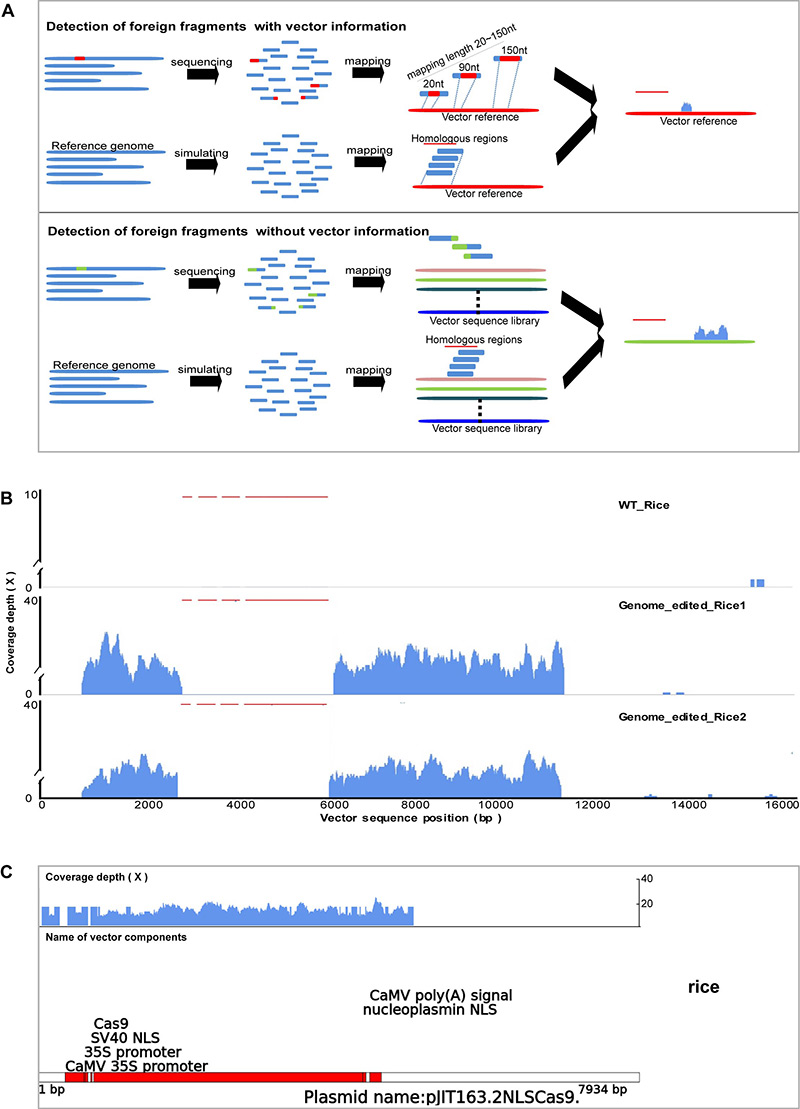







FED:a web tool for foreign element detection of genome-edited organism
July 22nd, 2020
Recently, researchers from China National Rice Research Institute (CNRRI), Chinese Academy of Agricultural Sciences and Institute of Genetics and Development Biology, Chinese Academy of Sciences jointly reported a web tool named Foreign Element Detector (FED) for foreign element detection of genome-edited organism.
Genome-editing technologies have provided unprecedented tool for genetic improvement. During the process, the DNA cassettes encoding the editing components are usually assembled and delivered into the cells of organisms, which increases the chance of producing unwanted off-target mutations or insertions of plasmid vector components on the genome. Several countries, including America, Japan, Canada, Australia, Brazil and Argentina, have introduced policies assuring for safety of genome-edited products. According to their regulatory framework, only those products detected with no exogenous DNA components can be commercialized on a large scale. At present, PCR or PCR-based methods are the most widely used for detecting these exogenous elements. However, the PCR-based method requires the primers designed for the given sequences. If the primed sequences are mutated or the exogenous elements are fragmented, it will be unable to examine them using the method, leading to a significant false negative rate. Moreover, the PCR-based method can be influenced by experimental conditions, which leads to falsely claimed positive or negative results. Therefore, to ensure the safety of genome-edited products, the screening method suited to reliably detect the integration of foreign elements is of critical importance.
Different from traditional PCR-based method, FED can elucidate the exogenous DNA components with unknown vector information using data derived from the whole genome sequencing. The vector sequence library is composed of 26921 vectors’ sequences with 46695 different components, which hosts reference genome information of 24 most commonly used plants and 13 animals. It is expected that the introduction of this technique would be significant to the application and regulation of genome-edited organism in the globe.
Supported by the National Transgenic Science and Technology Program (2019ZX08010-003), the National Key Research and Development Program of China (2017YFD0102002), the Agricultural Science and Technology Innovation Program of Chinese Academy of Agricultural Sciences, and the National Natural Science Foundation of China (31901523), the work entitled FED:a web tool for foreign element detection of genome-edited organism was published online on Science China Life Sciences. The exogenous DNA fragments detector is available at http://www.hi-tom.net/.
· Study Reveals How the Clock Component OsLUX Regulates Rice Heading
· Scientists Further Unravelled the Underlying Mechanism of Heading Date Control in Rice
· Improving the efficiency of prime editing in rice
· A New Infection Mechanism of Ustilaginoidea virens is Revealed
· Scientists Further Reveal the Infection Mechanism of Ustilaginoidea virens
CNRRI Today
Copyright © 2014- China National Rice Research Institute